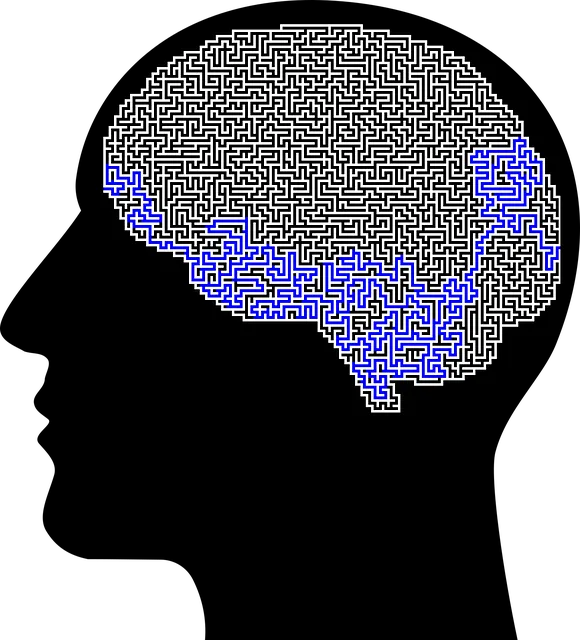The Denver Kaiser Permanente Mental Health Access Center utilizes RFM (Reach, Frequency, Motivation) analysis and Resilience Building Exercises to offer tailored mental health services. By considering demographics, they design inclusive programs addressing depression prevention, resilience, emotional intelligence, and mental health education. Their structured approach includes risk assessments, building resilience through group therapy, and integrating RFM into existing services with regular updates. Success is measured through evaluations tracking improvements in patient well-being and community support, fostering a culture of mental health awareness and accessibility at the Denver Kaiser Permanente center.
At the Denver Kaiser Permanente Mental Health Access Center, we’re pioneering innovative strategies to enhance patient resilience, focusing on RFM (Reach, Frequency, Monetary Value) analysis. This article delves into the integral role of RFM in our holistic approach to mental healthcare. We explore how demographic insights, service frequency, and monetary value interplay to foster resilience among patients. Through practical steps and measurable outcomes, we demonstrate how implementing tailored RFM strategies significantly impacts long-term mental health services at Denver Kaiser Permanente.
- Understanding RFM and its Role at Denver Kaiser Permanente Mental Health Access Center
- Identifying Key Factors: Demographics, Frequency, and Monetary Value
- Resilience Building Exercises: A Holistic Approach to Patient Care
- Implementing RFM Strategies: Step-by-Step Guide for Healthcare Professionals
- Measuring Success and Long-Term Impact on Mental Health Services
Understanding RFM and its Role at Denver Kaiser Permanente Mental Health Access Center

At the Denver Kaiser Permanente Mental Health Access Center, Understanding RFM (Reach, Frequency, and Motivation) is paramount in shaping effective mental health services. This framework guides the center’s approach to addressing a wide range of emotional healing processes, especially those tailored for diverse populations within the community. By analyzing how often individuals engage with mental healthcare services (Frequency), their level of commitment and motivation (Motivation), and the extent of their reach within different social networks (Reach), the center can design interventions that cater to unique needs.
This data-driven perspective enables the Denver Kaiser Permanente Mental Health Access Center to implement targeted initiatives for depression prevention, enhancing the overall resilience building exercises offered. Furthermore, it ensures that healthcare provider cultural competency training is infused into these practices, fostering an inclusive environment where emotional healing processes are accessible and tailored to all.
Identifying Key Factors: Demographics, Frequency, and Monetary Value

Identifying Key Factors is a critical step in designing effective mental health programs, such as those offered at the Denver Kaiser Permanente Mental Health Access Center. Demographics play a pivotal role, considering age groups, cultural backgrounds, and socioeconomic status influence an individual’s resilience and coping mechanisms. Understanding these factors ensures tailored exercises that resonate with diverse participants.
Frequency and monetary value of the exercises are also essential components. The Community Outreach Program Implementation should balance regular sessions to build consistent resilience with affordable or even free programs to encourage wider access. This strategic approach, combined with Emotional Intelligence training and Mental Health Education Programs Design, can significantly enhance community well-being, fostering a more resilient and supportive environment.
Resilience Building Exercises: A Holistic Approach to Patient Care

Resilience Building Exercises offer a holistic approach to patient care, focusing on the interconnectedness of mental, emotional, and physical well-being. At the Denver Kaiser Permanente Mental Health Access Center, this method has proven effective in enhancing the resilience of patients facing various challenges, from stress management to trauma recovery. By incorporating activities that cultivate emotional healing processes, these exercises empower individuals to navigate life’s difficulties with greater ease.
Incorporating Resilience Building Exercises into a patient’s treatment plan involves tailored interventions designed to strengthen their coping mechanisms. The Stress Management Workshops Organization emphasizes the importance of regular practice and community support in building resilience. Similarly, a comprehensive Risk Assessment for Mental Health Professionals helps identify individual needs, ensuring that emotional healing processes are personalized and effective. Through these holistic approaches, the Denver Kaiser Permanente Mental Health Access Center strives to equip patients with the tools they need to lead fulfilling lives, even amidst life’s challenges.
Implementing RFM Strategies: Step-by-Step Guide for Healthcare Professionals

Implementing RFM (Risk, Resilience, and Mental Health) strategies is a powerful approach for healthcare professionals aiming to enhance patient care at Denver Kaiser Permanente’s mental health access center. This step-by-step guide ensures a structured process:
1. Risk Assessment: Begin by thoroughly evaluating patients’ risk factors through comprehensive intakes and ongoing monitoring. Identify potential hazards, such as suicidal ideation or substance abuse, and develop individual plans to mitigate these risks.
2. Resilience Building: Foster resilience by tailoring interventions to each patient’s unique needs. This may include teaching stress management techniques, promoting cultural sensitivity in mental healthcare practice, and encouraging healthy coping mechanisms. Group therapy sessions can be powerful tools for building community and resilience among patients.
3. Mental Health Access Center Integration: Integrate RFM strategies into the center’s existing services seamlessly. Ensure that all staff are trained to recognize and respond to risks effectively while providing culturally sensitive care. Regularly review and update risk management planning for mental health professionals, aligning it with current best practices and research findings.
Measuring Success and Long-Term Impact on Mental Health Services

Measuring success is a critical aspect of implementing RFM (Resilience-Focused Mindfulness) and resilience-building exercises in mental health services, especially at centers like Denver Kaiser Permanente’s access center. By employing robust evaluation methods, healthcare providers can assess not only immediate improvements but also the long-term impact on patient well-being. This includes tracking reductions in burnout rates among staff and increased satisfaction levels, which are crucial indicators of successful programs. Furthermore, public awareness campaigns development can enhance understanding of these exercises’ benefits, fostering a broader culture of mental health support within the community.
The effect of RFM and resilience training extends beyond individual patients; it influences the overall operational efficiency and sustainability of mental health services. Regularly analyzing patient outcomes and staff feedback ensures that programs remain tailored to the evolving needs of Denver Kaiser Permanente’s diverse clientele. This continuous improvement approach not only enhances service quality but also contributes to burnout prevention strategies for healthcare providers, ultimately leading to a more resilient and confident workforce capable of delivering exceptional mental health care.
The implementation of RFM strategies at the Denver Kaiser Permanente Mental Health Access Center has demonstrated significant potential in enhancing patient resilience and overall mental well-being. By combining demographic insights, frequency of engagement, and monetary value, the center has developed tailored resilience-building exercises that offer a holistic approach to care. This structured guide ensures healthcare professionals can effectively integrate RFM into their practices, leading to measurable improvements in mental health services. As the program continues to evolve, its success will be evaluated through long-term impact assessments, further solidifying its role in supporting patient resilience and recovery.






